Brazil’s first ever minister of indigenous peoples tackles crises on multiple fronts
Sonia Guajajara is fighting back against the oppression of communities in the Amazon. She talks to Amanda Coletta and Marina Dias

She was a month into her new job, and Sonia Guajajara’s plate was already full. Brazil‘s first minister of indigenous peoples was in Boa Vista, the capital of Roraima state, responding to a crisis she had called a “genocide”.
She had visited a hospital where scores of Yanomami, an indigenous group in the Amazon, had been taken to be treated for disease; a consequence of the illegal mining that had surged in their territory under the government of former president Jair Bolsonaro.
Brazil’s environmental law enforcement agency had just launched a massive operation to drive out the illegal miners – or garimpeiros – but expected it would take months. A Yanomami man had the day before been killed, allegedly by miners.
Still to come was a hearing on the ongoing kidnapping of Guajajara people in her home state of Maranhão, where she began a career as one of Brazil’s most prominent indigenous activists. That career has reached a new height with her appointment to a significant – and historic – role in the government of President Luiz Inacio Lula da Silva.
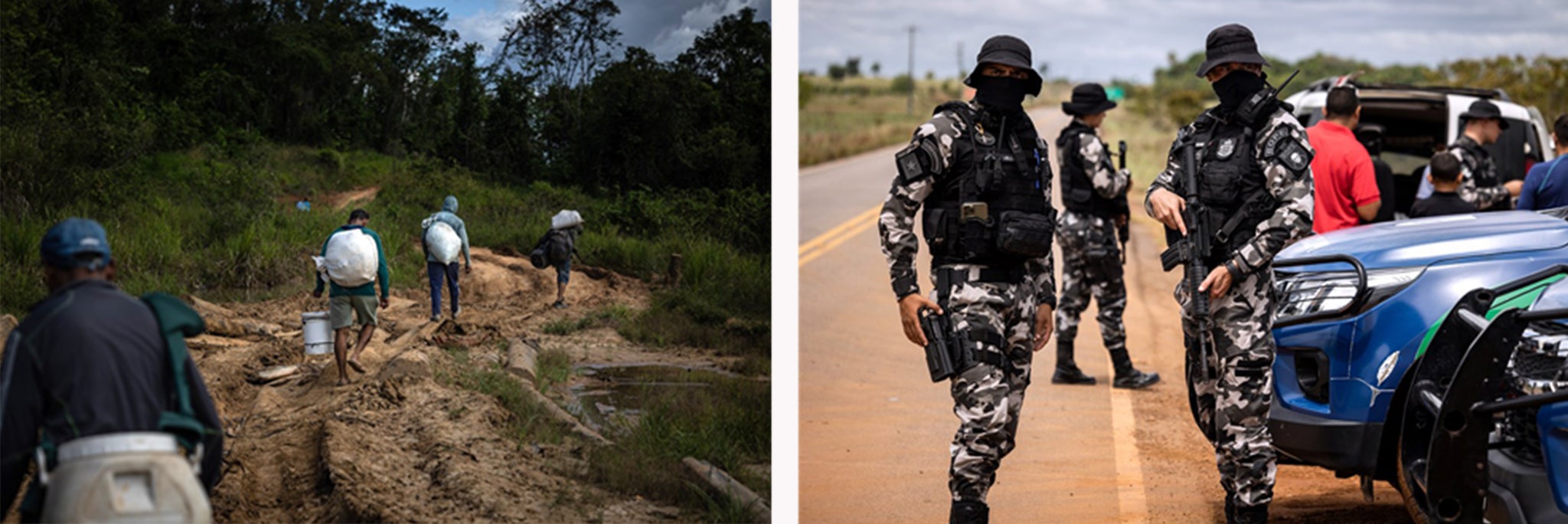
The more than 896,000 Indigenous Brazilians have never had their own ministry – let alone one headed by an indigenous woman whose activism earned her a spot on Time magazine’s list of the 100 Most Influential People of 2022.
Guajajara’s appointment was heralded, but the task she faces is enormous. Bolsonaro, a far-right populist, called the size of protected indigenous lands “abusive” and effectively stopped demarcating them, suggested the people were less than human, and saw their Amazonian home as a resource to be pillaged, not protected. He gutted the agencies responsible for protecting the rainforest and its people.
Davi Kopenawa Yanomami, a Yanomami spokesman, calls the creation of a ministry of indigenous peoples a “very big victory” for the indigenous movement in Brazil. But, he added, the ministry has many challenges to confront.
“It needs to have structure and it needs to have funding because without funding, it’s not going to work,” he tells us. “In the future, it has to be very strong and it has to be representative of the indigenous peoples and really defend us.”
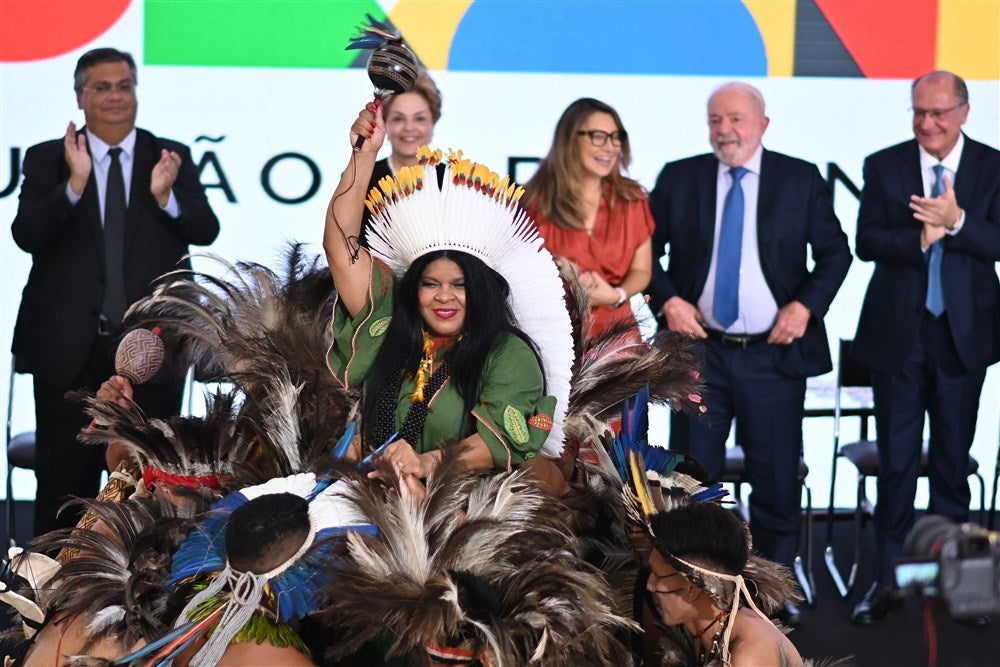
Gustavo S Azenha, executive director of the Institute of Latin American Studies at Columbia University, says the creation of the ministry signals a “much more serious commitment” to indigenous issues in the Lula government.
But there are many “big, systemic issues” that will take longer to address or that fall outside the control of the executive branch, he says. He pointed to indigenous land-rights cases, which can “drag on for years and years and years” in the courts.
“It is a positive move, and certainly the fact that the position of minister is being held by an indigenous woman is a really big change from the past,” Azenha says. “The question is how positive this is going to be in terms of actual impact.”
Reversing the accumulated damage of harmful policies and centuries of oppression won’t be easy. Guajajara says she recognises the scope of the challenge – “We know it will not be easy to overcome 522 years in four,” she said at her swearing-in ceremony – but insists she’s up to it.
“There are great expectations,” Guajajara, 48, tells us. “But there is a great willingness to exceed those expectations ... I’ve always dealt with this in the indigenous movement – denouncing illegal acts, bringing reality to light – and today, I’m in a place where I can make a decision.”

Guajajara was born to parents who couldn’t read in Arariboia in the Amazon region of Maranhão, where she had a front-row seat to the devastation that a changing climate and an indifferent or hostile government can wreak on ecosystems, people and centuries-old traditions.
Over time, food in the rainforest became more scarce. Animals such as tinamou, a bird the local indigenous people consider sacred, became even scarcer. The once-swelling rivers began to run dry. She wanted to fight for her community.
She studied literature and nursing and began a career in activism. Her profile grew. In 2018, she was the first indigenous woman to run for Brazil’s vice presidency.
Her Socialism and Liberty Party ticket finished 11th of 13 in the first round. But she became head of the Articulation of Indigenous Peoples of Brazil, the country’s largest indigenous advocacy organisation.
In that job, she was a vocal critic of Bolsonaro. The federal police, a force seen as loyal to the president, sought to investigate her for alleged slander after she criticised his handling of the coronavirus pandemic.
(As Brazil suffered one of the world’s deadliest outbreaks, Bolsonaro dismissed the virus as a “little cold”, disparaged vaccines and touted unproven and potentially harmful treatments.)
Guajajara filed a complaint. A Brazilian judge said the investigation appeared to be aimed at “silencing” Bolsonaro’s political opponents and the police dropped the probe.

Guajajara ran for Congress in last year’s election; one of a record number of indigenous female candidates campaigning to reverse laws made by mostly male politicians that threaten their lands and personhood. She was among a handful who won.
Indigenous groups here have long called for a ministry of indigenous peoples, and Lula pledged during last year’s presidential election campaign to establish one. Weeks after the October vote, his secretary asked Guajajara to come to the Melia hotel.
Soninha, Lula told her, I invite and nominate you to be the minister of indigenous peoples.
"When Lula formalised the invitation, it was a great joy,” Guajajara says. “I could not deny it ... Because it is a new ministry. It is a ministry with many challenges, which needs a lot of courage.”
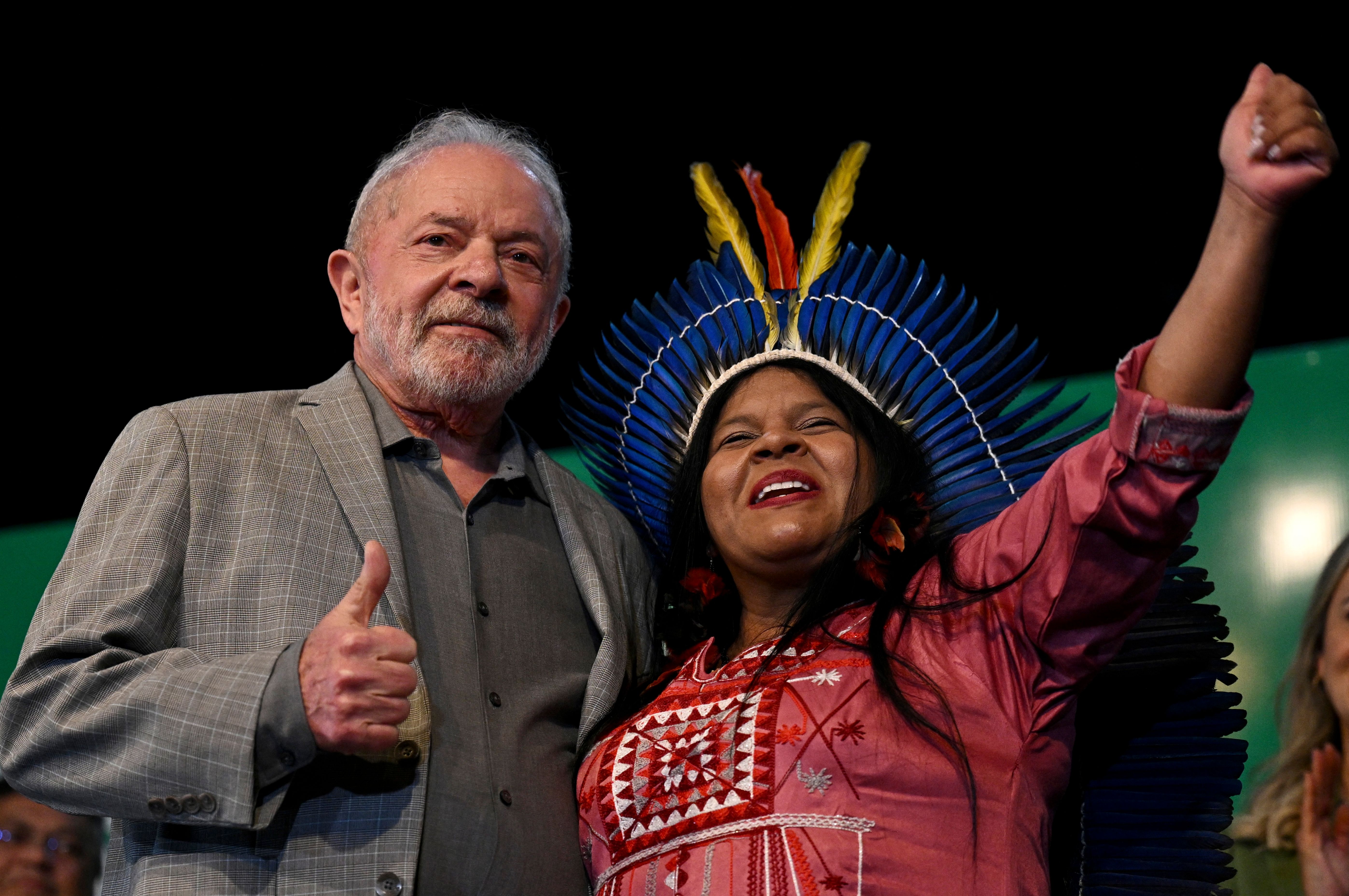
Chief among them is the public health crisis facing the roughly 30,000 Yanomami people, who live in a Portugal-size area of the Amazon in Brazil.
Thousands of illegal wildcat miners were booted from their lands in the 1990s after the calamitous consequences of their presence drew global criticism. But they later returned, and under Bolsonaro invaded more territory virtually unchecked, poisoning Yanomami water and food sources with mercury and other toxins while sending deforestation to a record high.
Brazil’s human rights ministry says indigenous leaders were to writing government agencies about the crisis as far back as 2019. But their pleas for help were ignored, and in some cases, the government took actions that were to the “detriment” of Yanomami communities.
The Supreme Court opened several investigations into the Bolsonaro government for “the practice, in theory”, of alleged genocide, disobedience of court decisions, leaking secret information and environmental crimes tied to the health and safety of indigenous communities.
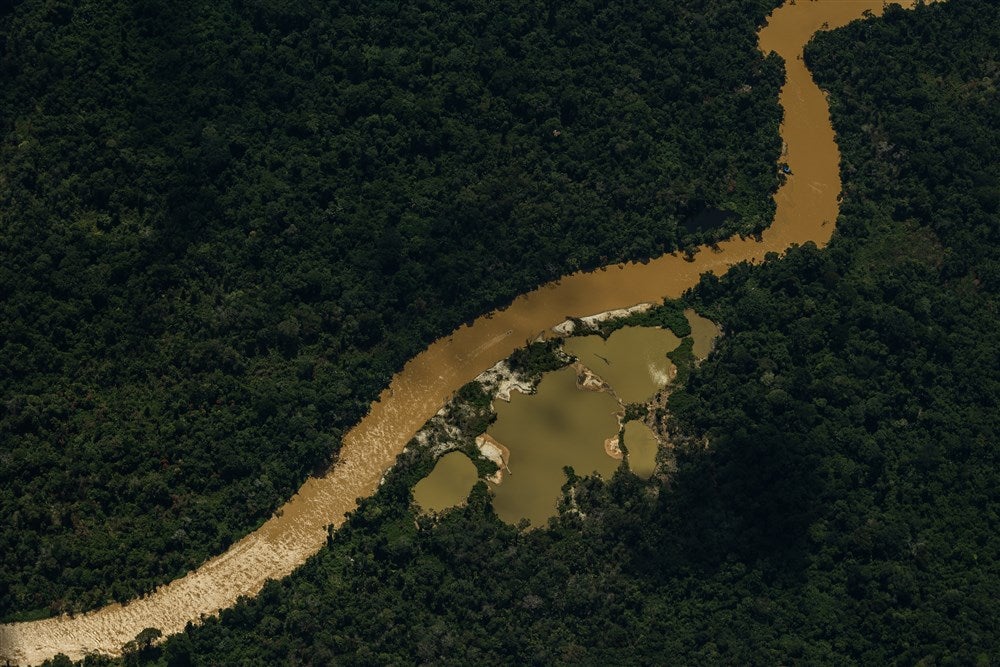
In announcing the probes, Justice Luis Roberto Barroso said records suggest that indigenous peoples are suffering from “absolute insecurity” as a result of actions or omissions by federal authorities that aggravated the situation.
Among the possible failures being investigated is a decision by a Bolsonaro justice minister to leak the date, time and place of an operation to root out illegal mining to the garimpeiros, giving them time to flee.
Though the public health emergency has existed for years, it has drawn more attention here in recent months as authorities began medically evacuating Yanomami from their territories. Images of severely malnourished children have shocked the country.
After an exploratory mission to Yanomami communities, the health ministry this month reported a high prevalence of malnutrition and disease, including pneumonia and malaria, which is spreading because of the large pools of standing water from the mining.
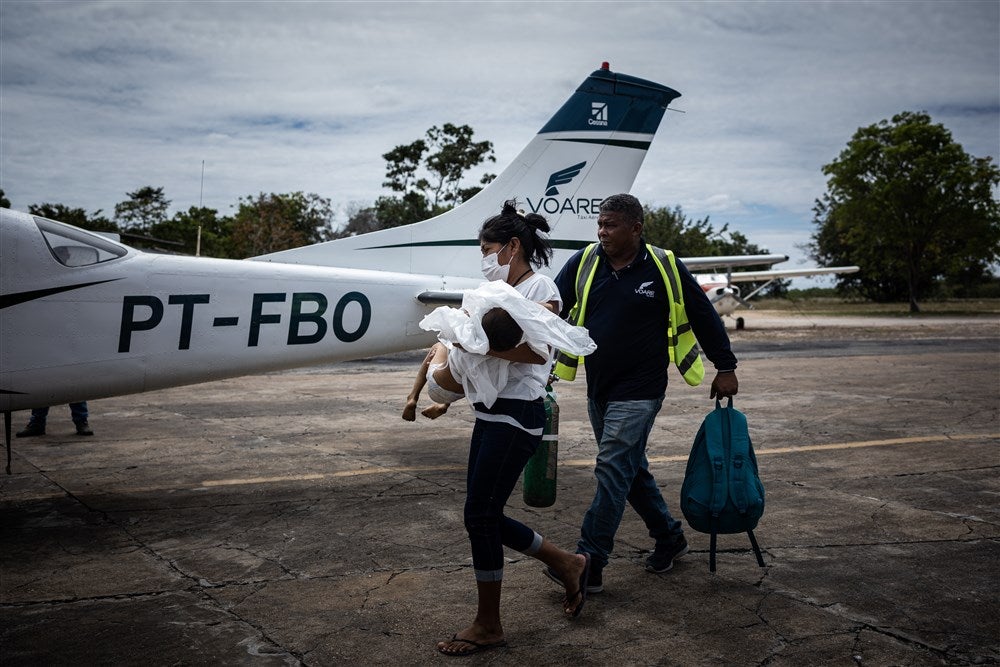
Children are particularly vulnerable. In 2022, 209 people died in Yanomami territory between January and September. Nearly half were children younger than five, who died of “preventable causes”. Close to 70 were children younger than one.
Healthcare facilities, including those run by government agencies responsible for protecting indigenous people, are overwhelmed, underequipped and face intimidation by the garimpeiros, the ministry said.
“What exists in Yanomami territory today is true chaos,” Guajajara says. “A health calamity, humanitarian crisis and nutritional crisis. The hole opening in the soil today to exploit gold is the genocide of the Yanomami people.”
© The Washington Post






Join our commenting forum
Join thought-provoking conversations, follow other Independent readers and see their replies
Comments